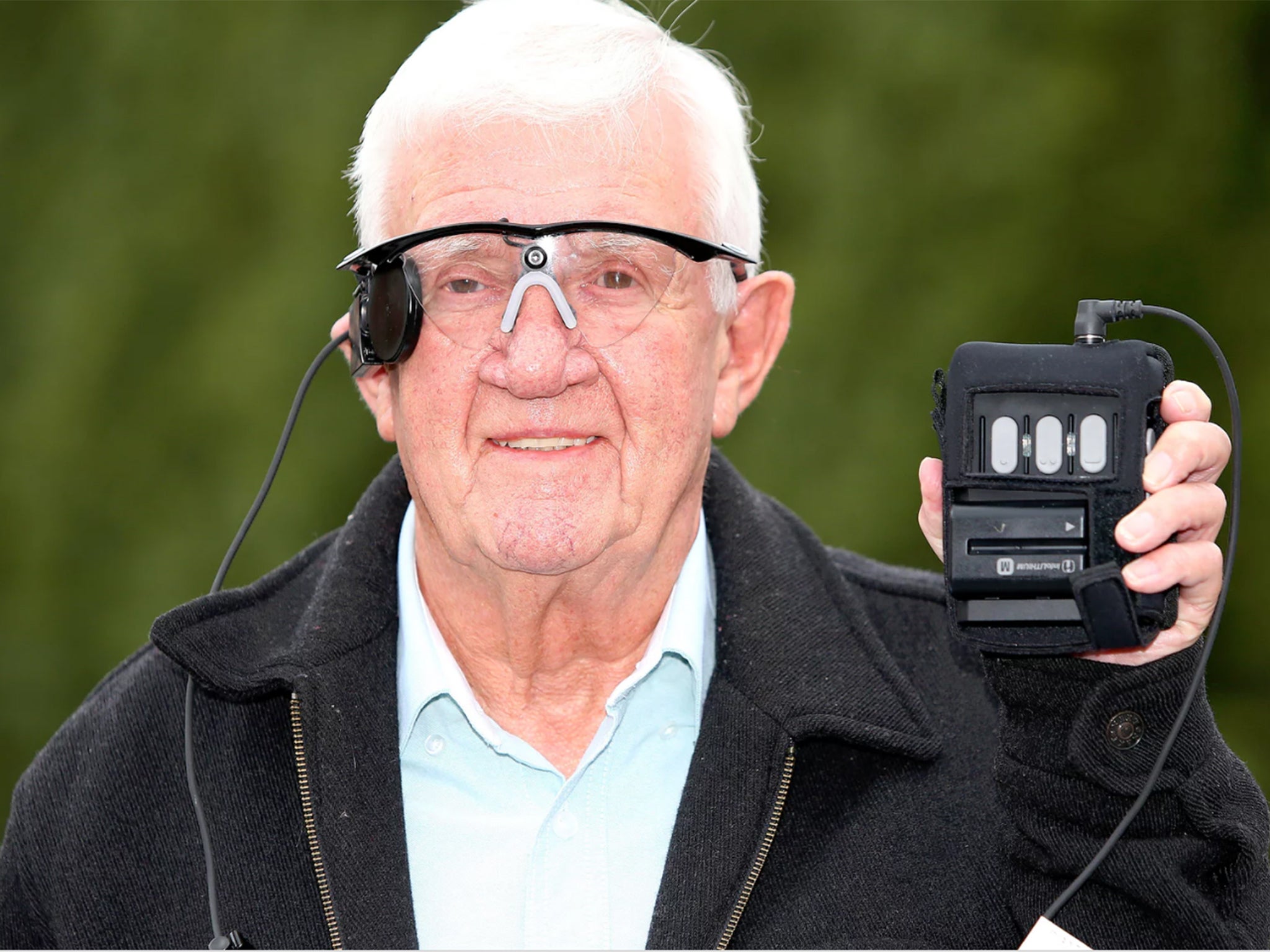NHS to test experimental bionic eye implants on blind patients in 'pioneering' bid to restore sight
Five patients suffering with retinitis pigmentosa to be treated at Manchester Royal Eye Hospital and five at Moorfields in London next year

The NHS will pay for 10 people with an inherited form of blindness to be fitted with “bionic eye” implants.
Five patients with a condition known as retinitis pigmentosa will be treated at the Manchester Royal Eye Hospital and five at Moorfields Eye Hospital in London next year.
They will be given a pair of glasses mounted with a camera that captures light and sends wireless signals to an implant in the retina.
The implant will then relay information to the brain to help patients regain some sight.
Professor Paulo Stanga, from Manchester Royal Eye Hospital, was involved in earlier trials using the Argus II Bionic Eye to treat retinitis pigmentosa.
He said: “I'm delighted that our pioneering research has provided the evidence to support NHS England's decision to fund the bionic eye for the first time for patients.
“It surpassed all of our expectations when we realised that one of the retinitis pigmentosa patients in Manchester using the bionic eye could identify large letters for the first time in his adult life.”
The procedure will funded by NHS England as part of a scheme that assesses treatments showing promise for the future.
Patients will be monitored for one year to see how the implant improves their lives.
Keith Hayman, from Lancashire, was one of the first to have the bionic eye implant fitted during a trial at the Manchester Eye Hospital in 2009.
The 68-year-old, who was diagnosed with retinitis pigmentosa in his twenties, was forced to retire as a butcher in 1981 when he became blind.
He said: “Having spent half my life in darkness, I can now tell when my grandchildren run towards me and make out lights twinkling on Christmas trees.
“When I used to go to the pub, I would be talking to a friend, who might have walked off and I couldn't tell and kept talking to myself.
“This doesn't happen any more because I can tell when they have gone. These little things make all the difference to me.”
Dr Jonathan Fielden, director of specialised commissioning at NHS England said: “This highly innovative NHS-funded procedure shows real promise and could change lives.
“The NHS has given the world medical innovations ranging from modern cataract surgery, new vaccines and hip replacements.
“Now once again the NHS is at the forefront of harnessing ground-breaking science for the benefit patients in this country.”
The Argus II retinal implant, made by Second Sight, has also been trialled to treat those suffering from age-related macular degeneration - the most common cause of sight loss in the developed world with between 20 and 25 million sufferers worldwide.
PA
Join our commenting forum
Join thought-provoking conversations, follow other Independent readers and see their replies
Comments